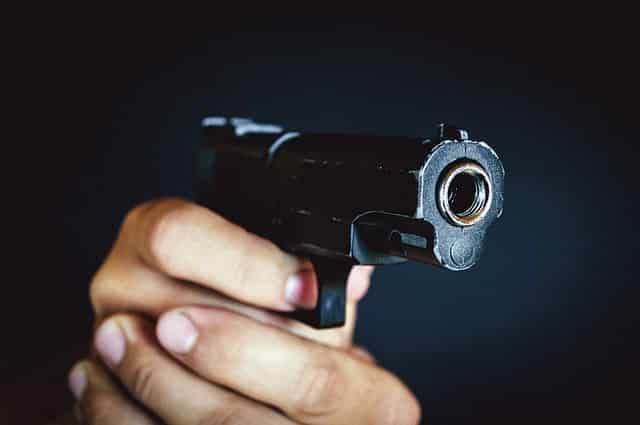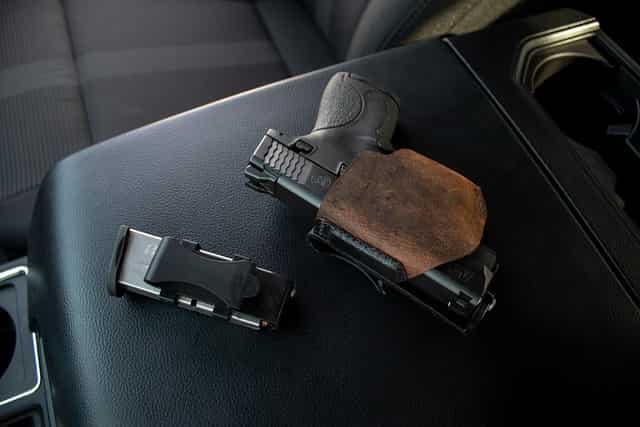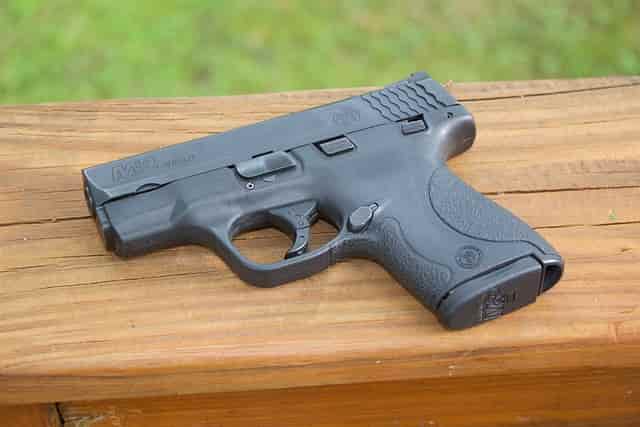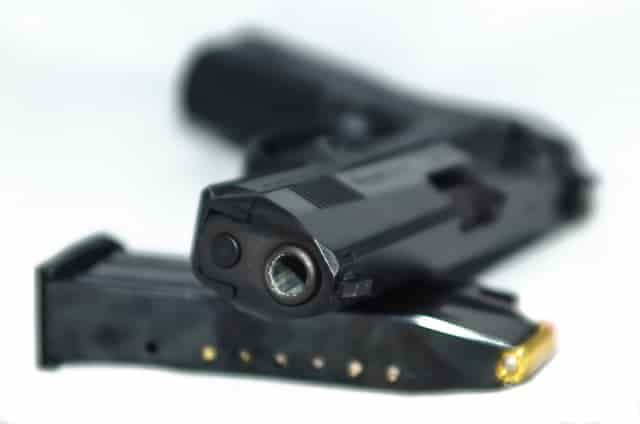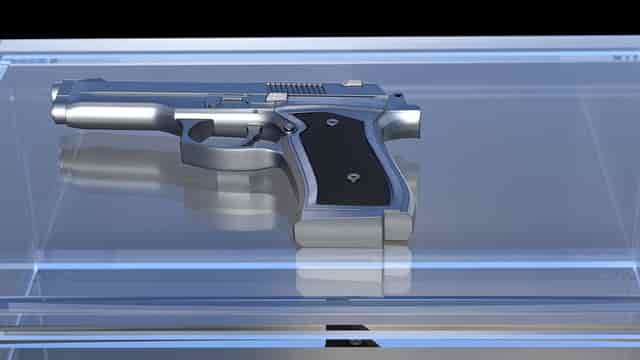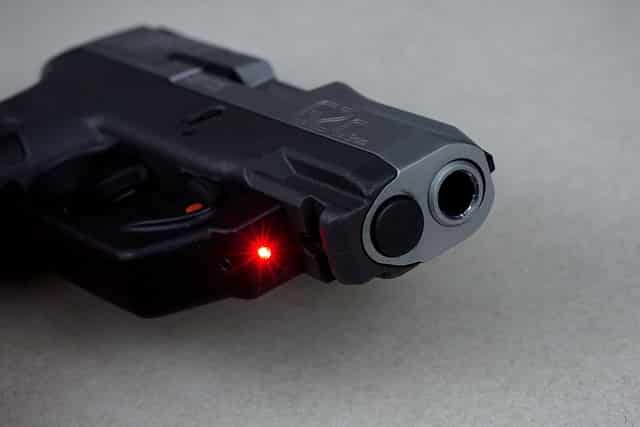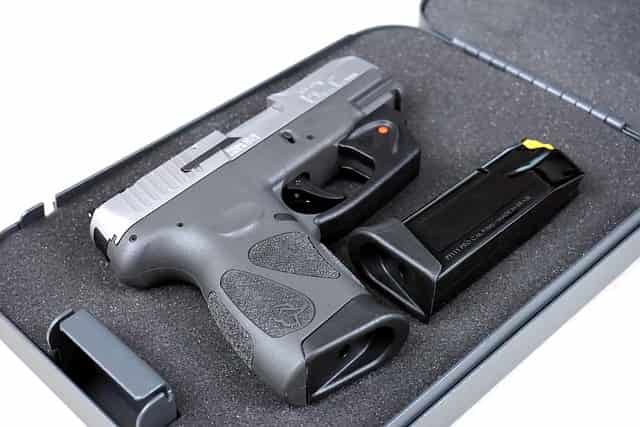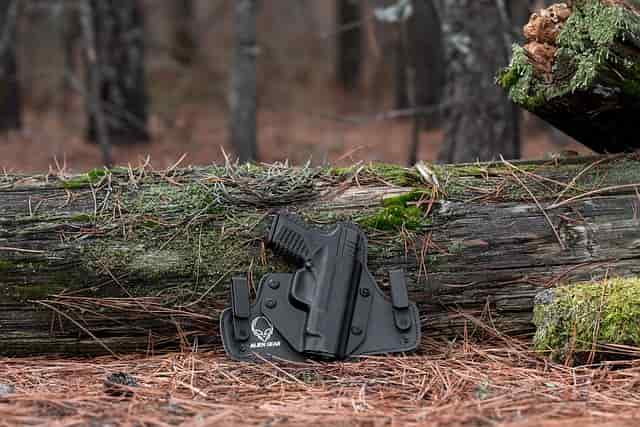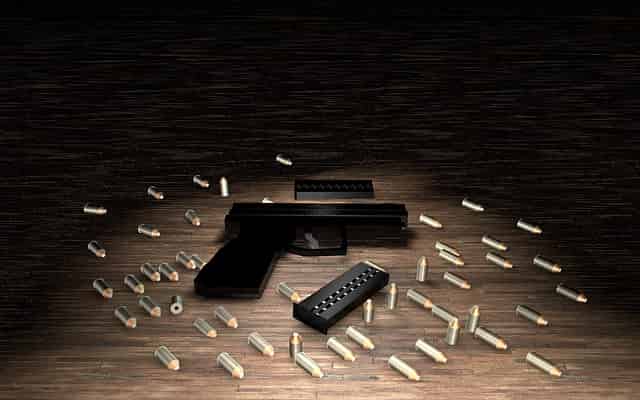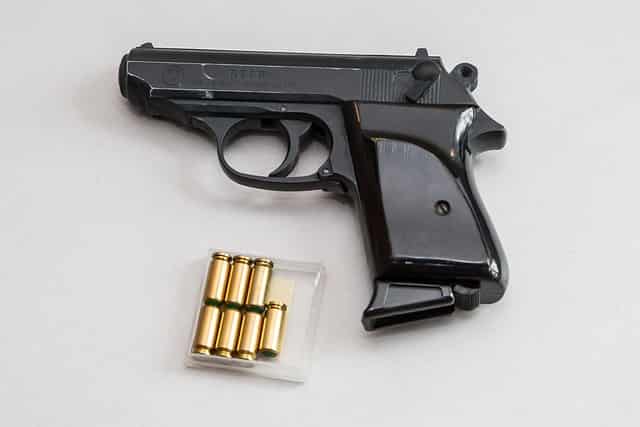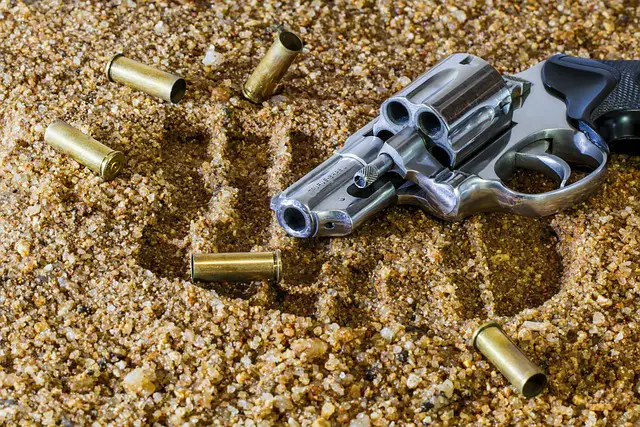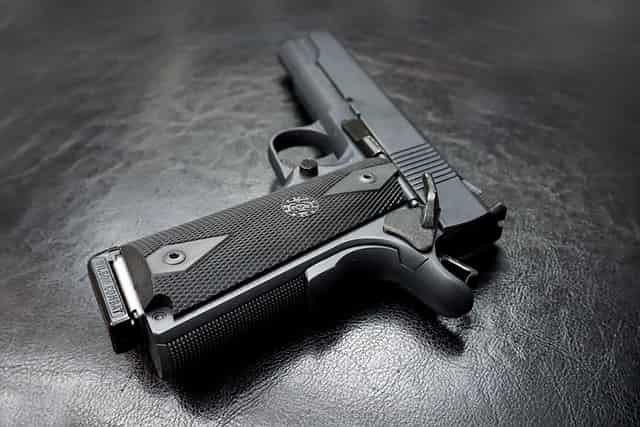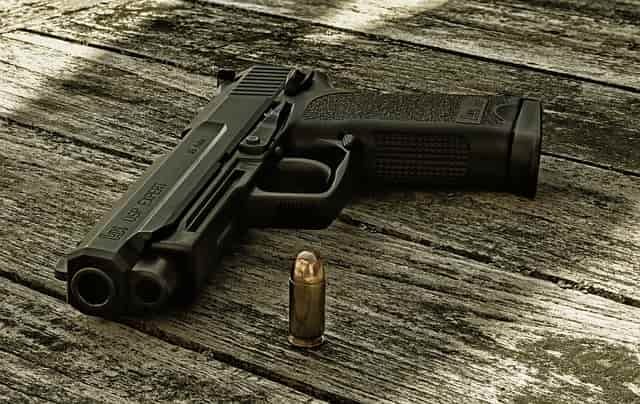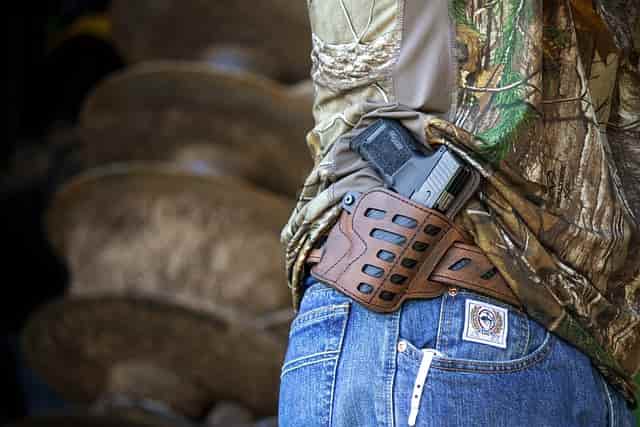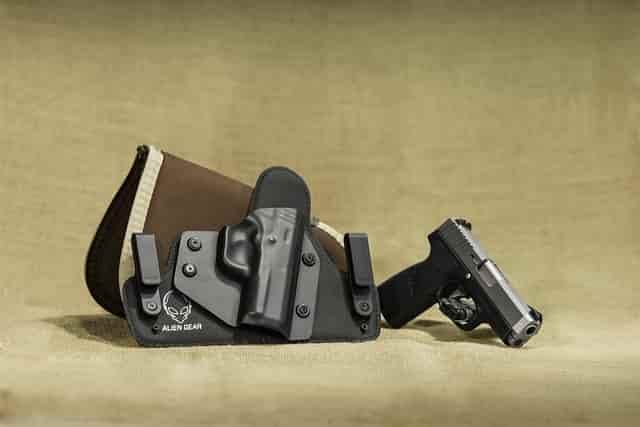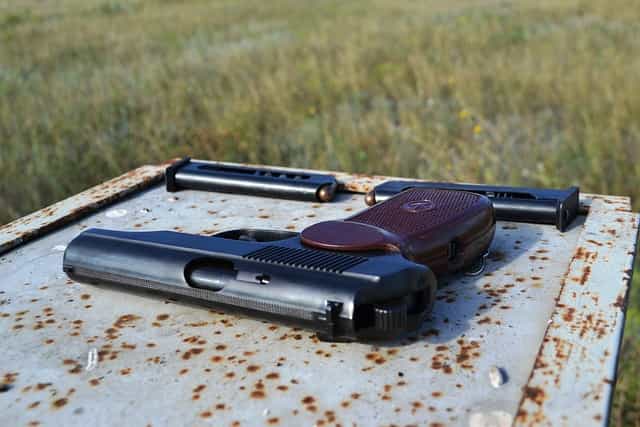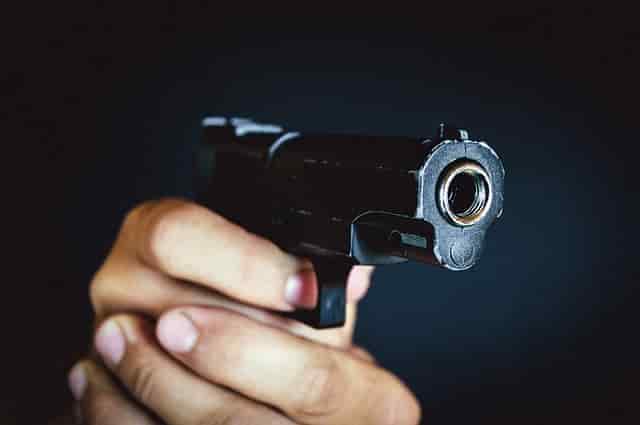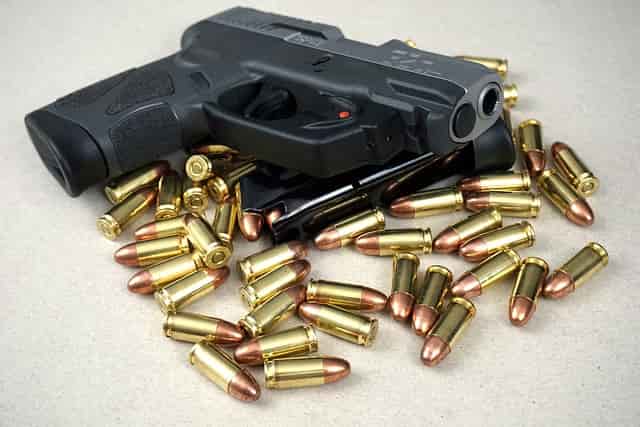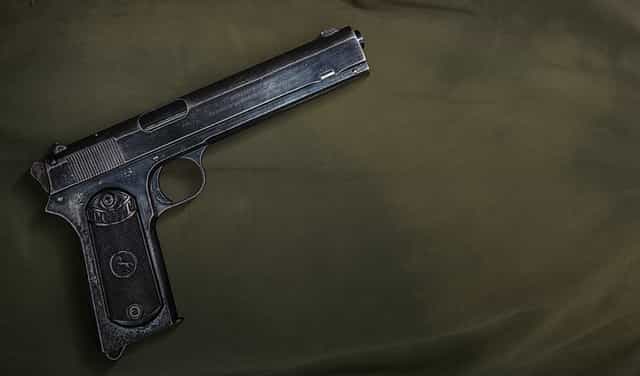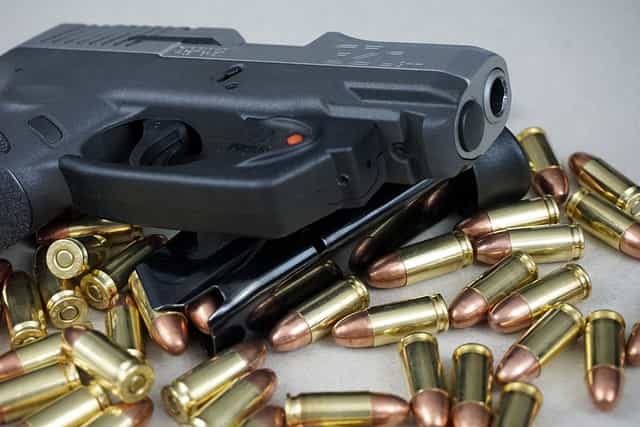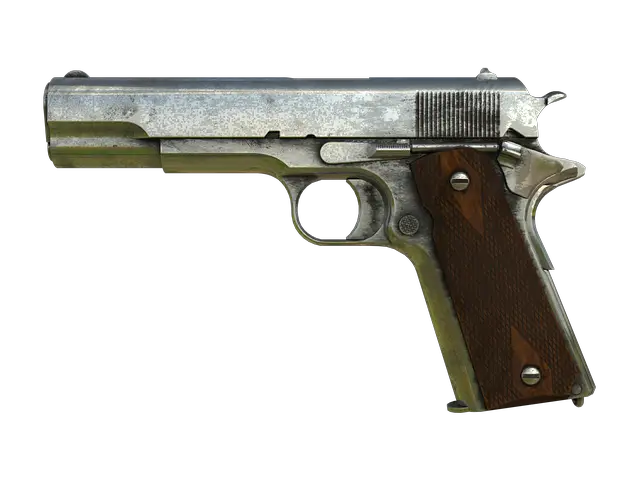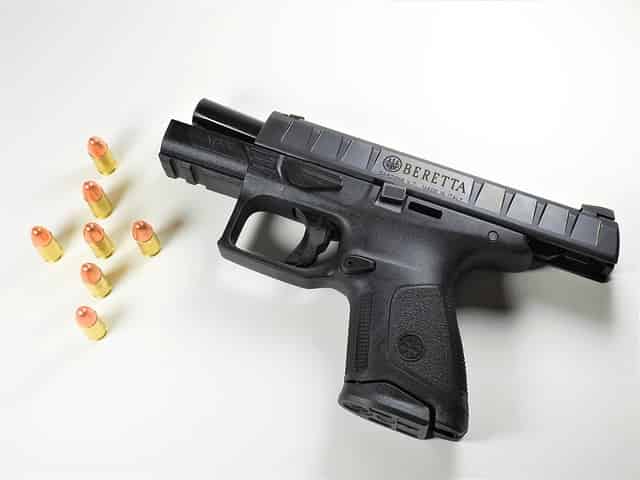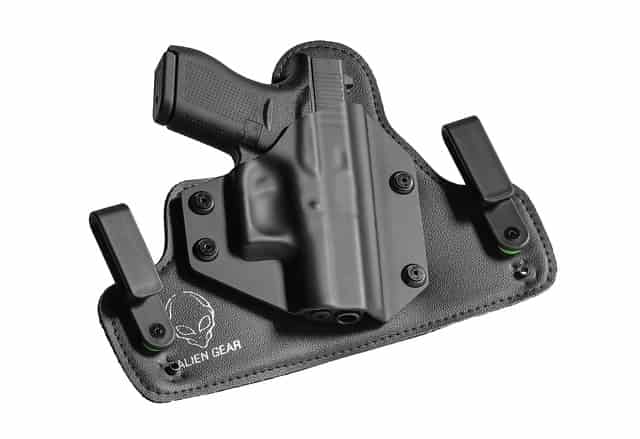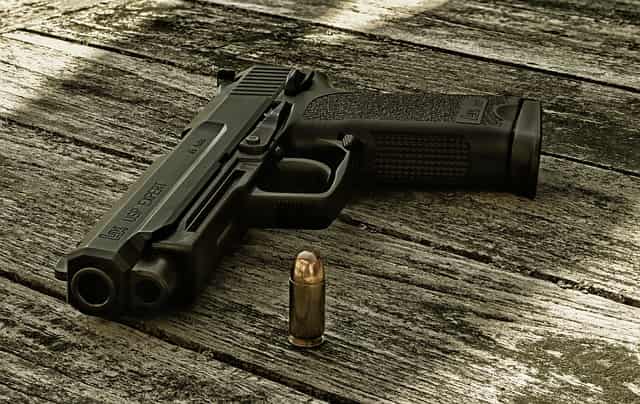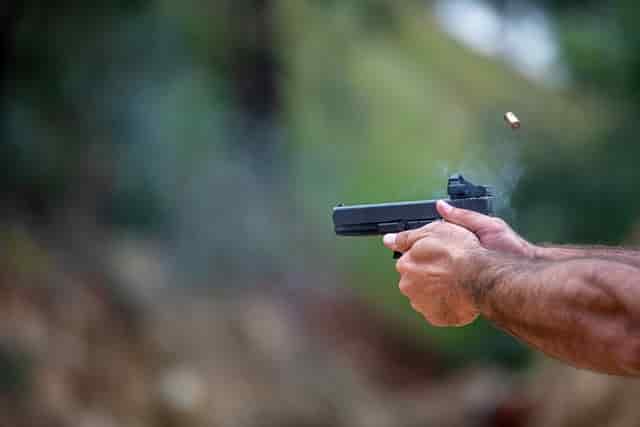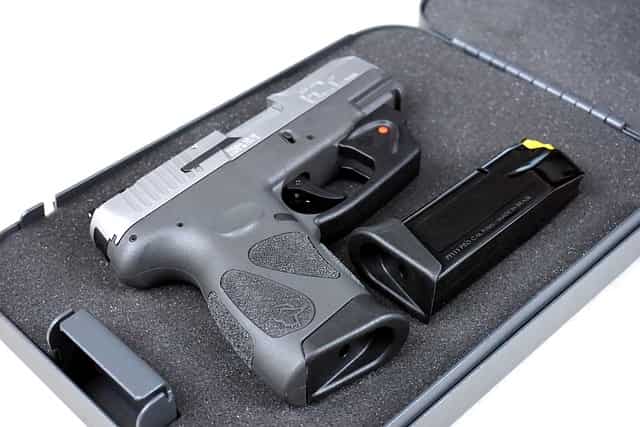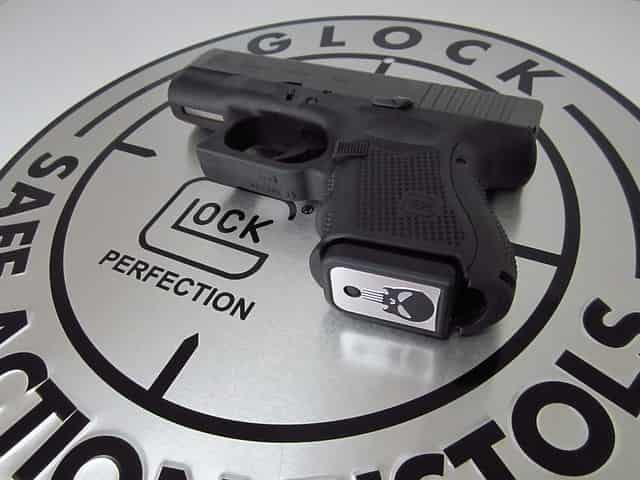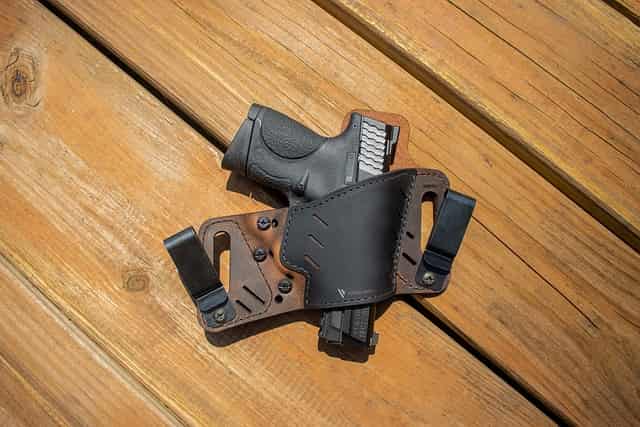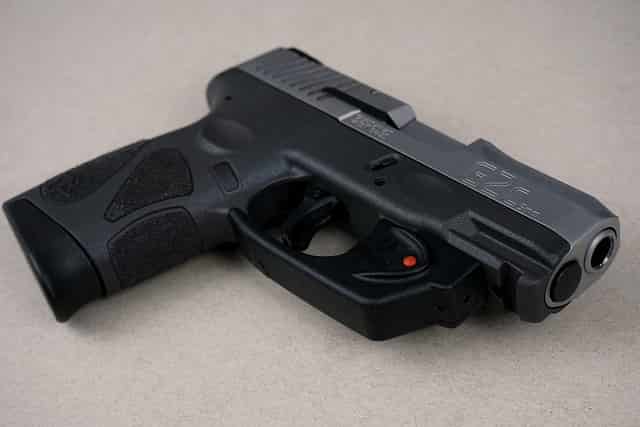Overview of Enhanced Concealed Carry Permit
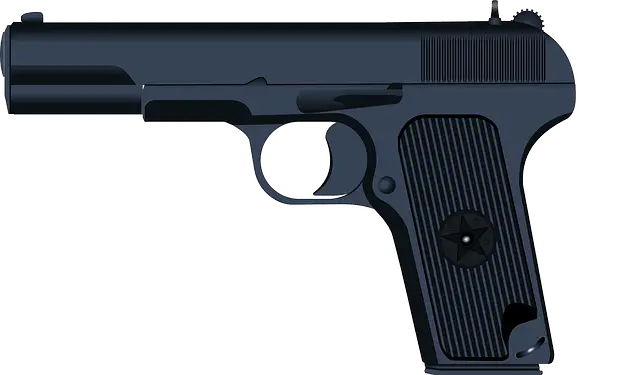
In Mississippi, the Enhanced Concealed Carry Permit offers you certain privileges over the standard permit. The Mississippi Department of Public Safety oversees the issuance of these permits pursuant to regulations set by state legislature. Your Enhanced permit signifies that you have undergone specific firearms training which can extend where you are allowed to carry a concealed weapon.
To obtain your Enhanced endorsement, you must complete an 8-hour firearms safety course taught by a certified instructor. This course will cover not only firearm handling but also legal aspects related to carrying a concealed weapon. Upon completion, you’ll receive a certificate, which you’ll need to present as part of your application process.
When you hold an Enhanced Concealed Carry Permit, your ability to legally carry in certain locations that are otherwise restricted to standard permit holders is broadened. This includes, but is not limited to, places like public parks and government meetings.
Please remember that this permit does instill certain additional responsibilities on you as a carrier, ensuring you understand the balance between rights and safety. Stay informed of the local and state regulations that govern where and how you may carry your concealed weapon. This heightened level of certification underscores a commitment to responsible gun ownership and the safety of both yourself and those around you.
Key Points:
- Training: Mandatory 8-hour course
- Issuing Body: Mississippi Department of Public Safety
- Benefits: Carry in more locations
- Responsibility: Adherence to safety and legal standards
For more details on courses and to schedule training, see below:
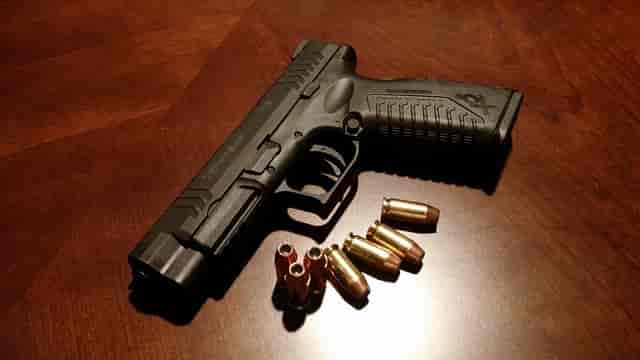
Eligibility and Legal Requirements
In Mississippi, obtaining an enhanced concealed carry permit requires meeting specific state-mandated stipulations. Delve into the residency and age criteria, alongside the legal background requirements, to understand if you're eligible.
Residency and Age Criteria
To apply for an enhanced concealed carry permit in Mississippi, you must be a resident of the state. If you're not sure about your residency status, consider documents such as your driver's license, state ID, or utility bills as proof. Moreover, the minimum age requirement is 21 years old. However, exceptions exist for individuals 18 and older serving in the military or honorably discharged.
Legal Background Requirements
The legal prerequisites dictate that you must not be prohibited from possessing a firearm under state or federal law. This entails a clean criminal record, with an emphasis on no felony convictions. Additionally, disqualifying misdemeanor offenses related to violence or substance abuse may inhibit your ability to receive the permit. It's crucial that all applicants submit to a background check, aligning with both state and federal regulations to ensure all legal standards are met for the issuance of a firearm permit.
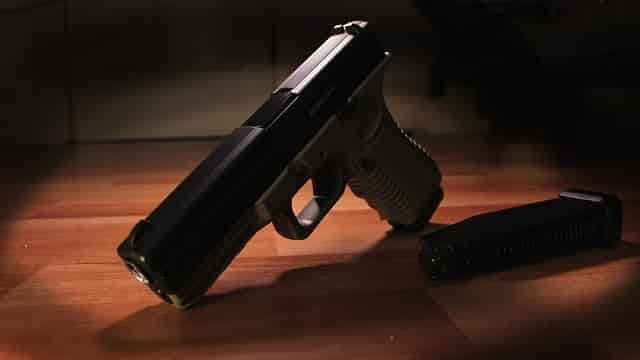
Training and Education for Enhanced Permit
To obtain an Enhanced Concealed Carry Permit in Mississippi, it's crucial that you complete a certified firearms training program. The training is designed to equip you with the necessary skills in firearm safety and defensive shooting tactics, ensuring responsible and effective firearm use.
Certified Enhanced Permit Instructor
For your enhanced permit training, you must ensure that your instructor is certified by the Department of Public Safety in Mississippi. Certified enhanced permit instructors have undergone a thorough certification process, so you can trust that you're receiving reliable education and guidance. This instructor will be your resource for both the educational and hands-on portions of your permit application process.
Firearm Safety and Shooting Fundamentals
The core of your training will involve a strong emphasis on firearm safety. You'll learn the essential rules of handling and storing firearms to prevent accidents. Furthermore, your instructor will guide you through the shooting fundamentals, such as stance, grip, sight alignment, sight picture, trigger control, and follow-through, establishing a solid foundation for responsible firearm usage.
Defensive Shooting Concepts
Defensive shooting is a critical component when carrying a firearm for self-defense purposes. Your education will cover various defensive shooting concepts that apply to real-world scenarios. This includes understanding the physiological and psychological responses you might encounter in a self-defense situation and how to manage them effectively, as well as the legal aspects of using a firearm to defend yourself.
By completing appropriate training, you'll be better prepared, both practically and mentally, for carrying a firearm under an Enhanced Concealed Carry Permit.
Application and Certification Process
In Mississippi, obtaining an Enhanced Concealed Carry Permit involves a regulated process that ensures individuals are qualified and certified to carry concealed weapons. You must submit an application and complete a state-approved training course.
Submitting the Enhanced Carry Permit Application
To apply for your Enhanced Carry Permit, you'll need to contact the Mississippi Highway Patrol Office and request the application packet. Ensure you provide all the required information and documentation, including:
- A copy of your certificate from the qualifying training course
- A valid form of identification
- The applicable fee
You can submit your application via email or in person at a Highway Patrol office. Payment methods vary, so confirm acceptable forms of payment when you receive the application instructions.
Completion and Certification
Upon submission, you must present proof of completion of an 8-hour firearms safety and training course conducted by a state-approved instructor. This certification is mandatory for your permit to be endorsed for Enhanced Carry, which allows you to carry concealed in more locations throughout Mississippi. Once the Highway Patrol has reviewed and processed your application, and if all criteria are met, your Statewide Firearms Permit will be issued. Keep in mind that a background check will be part of this certification process.
Remember to maintain a copy of all documents submitted for your records and future reference.

Firearms and Equipment
When considering the requirements for the Enhanced Concealed Carry Permit in Mississippi, it's vital to know the specifics of which firearms are permissible and the essential gear that will support your readiness. Proper selection of your concealed pistol or revolver, along with the right ammunition and accessories, is crucial.
Approved Firearms for Concealed Carry
Your choice of firearm for an Enhanced Concealed Carry Permit is typically either a pistol or a revolver. Pistols, being semi-automatic, offer the convenience of larger magazine capacities and quicker reload times. On the other hand, revolvers are known for their reliability and simplicity, though they carry fewer rounds.
- Pistols: Generally preferred for their ease of use and higher ammunition capacity, which can range from 10 to 17 rounds in a standard magazine.
- Revolvers: Often selected for their durability and straightforward mechanics, they typically hold 5 to 6 rounds and can be used with speed loaders for faster reloading.
Ammunition and Accessories
Selecting the right ammunition for your concealed firearm is just as crucial as the firearm itself. You'll need to match the caliber of your ammunition to that of your gun and consider the type of ammo designed for defensive use.
- Ammunition: Choose high-quality cartridges that are reliable and provide the stopping power necessary for self-defense situations.
- Accessories:
- Magazines: If you carry a pistol, having at least one spare magazine is recommended.
- Speed Loaders: Speed loaders can be a significant advantage for those carrying revolvers, allowing for quick reloads.
Remember, training with your selected firearm and equipment is essential to ensure your comfort and proficiency with their use in a variety of scenarios.
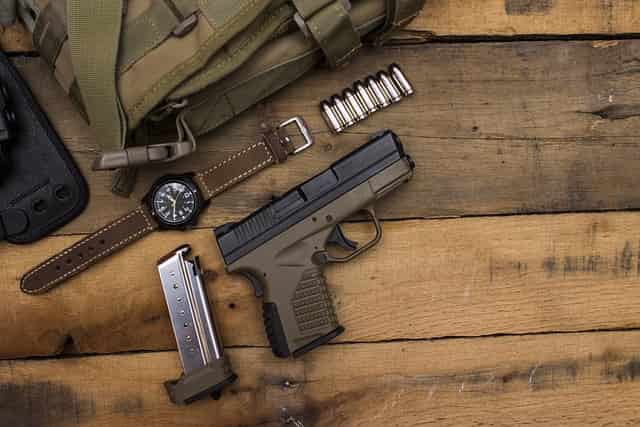
Legal Considerations and Reciprocity
Before seeking an enhanced concealed carry permit in Mississippi, it's crucial to comprehend the state's laws and how they interact with other states' regulations. Understanding these legal considerations ensures that you can carry your firearm responsibly and within the bounds of the law.
Understanding Mississippi Laws
Mississippi law provides for two types of concealed carry permits: the standard permit and the Mississippi Enhanced Carry Permit. While the standard permit allows lawful concealed carry of a firearm, obtaining an enhanced permit affords you additional privileges. With an enhanced permit, you're authorized to carry concealed in locations that otherwise restrict standard permit holders, such as educational institutions and government buildings. To qualify for the enhanced permit, you must complete a certified firearms training course taught by Mississippi certified enhanced permit instructors.
Statewide Reciprocity and Regulations
When it comes to reciprocity, Mississippi recognizes concealed carry permits issued by other states, and similarly, other states may recognize Mississippi permits. However, regulations can vary significantly from one state to another. It's imperative that you verify the specific rules before traveling, as some jurisdictions grant reciprocity for the Mississippi Enhanced Carry Permit, which may provide broader legal coverage. Carrying statewide with an enhanced permit denotes a commitment to adhering to both Mississippi laws and the laws of any other state in which you wish to carry your firearm. Remember, law enforcement agencies (LEA) may require you to present your permit upon request, so always carry it along with a valid ID.
Frequently Asked Questions
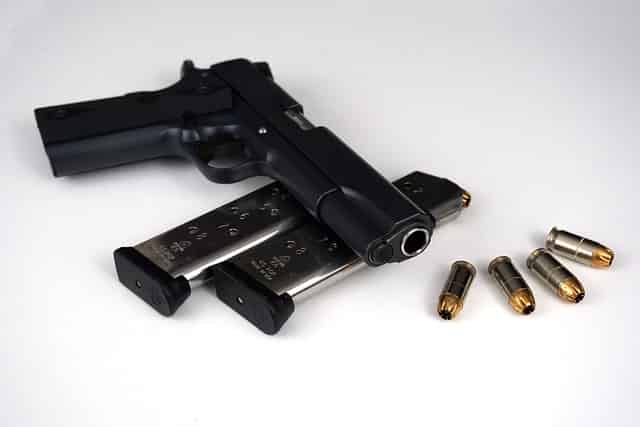
Navigating the requirements and process of enhanced concealed carry permits in Mississippi can be complex. This section aims to answer the most common questions you may have about obtaining and understanding the enhanced permit.
What are the requirements for obtaining an enhanced carry permit in Mississippi?
To obtain an enhanced carry permit in Mississippi, you must be at least 21 years old and legally allowed to own, purchase, and possess a firearm. You also need to complete an 8-hour training course from a Mississippi certified enhanced permit instructor.
How much does it cost to obtain an enhanced concealed carry permit in Mississippi?
The cost of an enhanced concealed carry permit in Mississippi includes fees for the application, training course, and any additional costs for documentation required as part of the application process.
Can the mandatory class for a Mississippi enhanced carry permit be taken online?
There is no indication from the given search results that the mandatory class for an enhanced carry permit in Mississippi can be taken online. Check with a certified instructor for the most accurate and up-to-date options.
How do I find qualified instructors for the enhanced carry permit course in Mississippi?
Qualified instructors for the enhanced carry permit course in Mississippi can be found through certified training organizations or by contacting the Mississippi Department of Public Safety for a list of certified enhanced permit instructors.
What is the difference between a concealed carry permit and an enhanced carry permit in Mississippi?
An enhanced carry permit in Mississippi allows you to carry a concealed pistol, stun gun, or revolver in places that are off-limits to standard concealed carry permit holders, like certain government buildings.
Which other states recognize Mississippi's enhanced concealed carry permit?
The recognition of Mississippi's enhanced concealed carry permit by other states can vary, so it's important to verify this with each state or by checking with a knowledgeable entity like Concealed Coalition which might provide a list of states that honor Mississippi's permit.
Have you ever thought about buying ammo online?
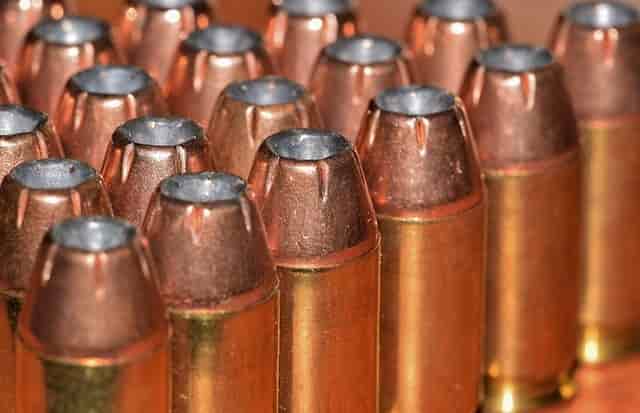
I'm telling you it's so easy with Lucky Gunner! The ammo shown on their site is guaranteed to be in stock and will ship fast. I heartily endorse Lucky Gunner and so do their many customers.
"Okay, so far I've dealt twice with LuckyGunner, and all I can say is, I LOVE YOUR COMPANY!!!!
Imagine: only items in stock are advertised. Who'da thunk, eh? The more highly advertised ones - Cheaper Than Dirt, Cabela's, et. al. - will put you on backorder forever and a day. But LuckyGunner - I ordered 500 shells of .45 ACP (hard to get in this "shortage") - and there it was at my address. No backorders, no bull. Business as it should be.
Yes, I'm telling my friends! I'm constantly writing down your addy on bits of paper (and running out of the latter), spreading the joyous news, "No backorders! No bull! Try LuckyGunner.com, you won't be sorry!" Thank you for being there for an ammo-starved public. And, thanks for the SUPERB customer service."
-- Walter J., Silverdale, WA --

